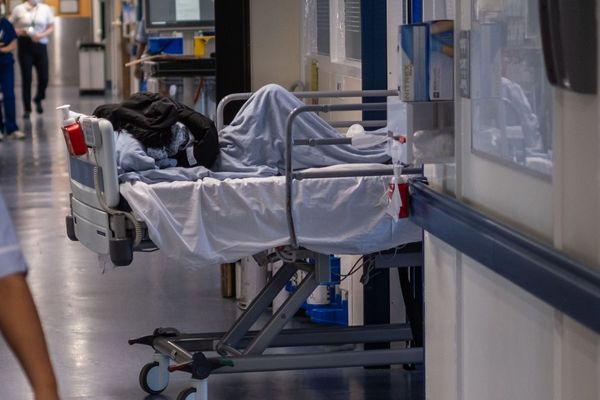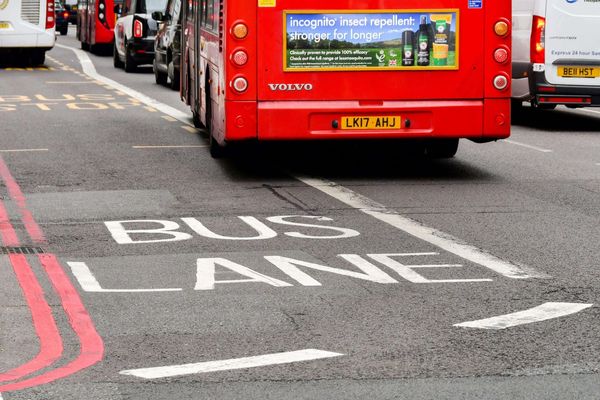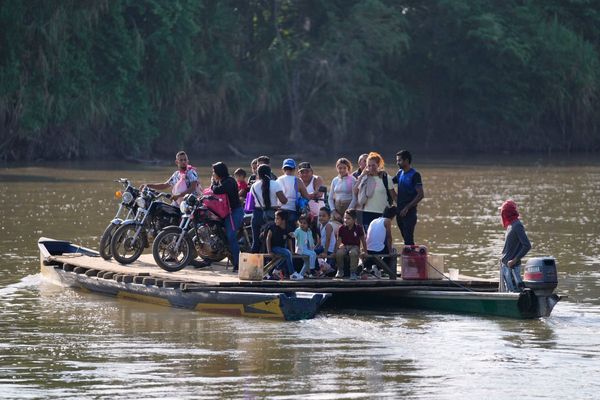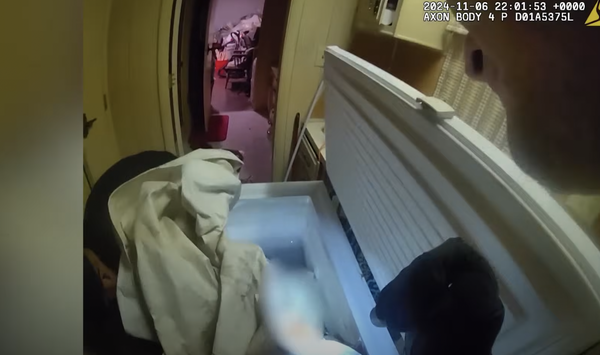It's just 4 degrees outside on a chilly Mount Isa morning. The bright pink cloud formations unique to the state's north-west are already dominating the broad Queensland sky.
Nine-year-old Kevin is tucking into a cup of Milo in the kitchen of Mount Isa's youth hub. He's also had a hot shower and bacon and eggs for breakfast.
He's shrouded in his warm blue hoodie – he might live in Queensland, but he's riding high on New South Wales' win in the State of Origin the night before.
An enormous white-toothed grin appears as he talks of his favourite player, Josh Addo-Carr.
The youth hub is his second home.
Father Mick Lowcock walks by and pats him on the shoulders, with a quick chat and a quiet word.
He's known as Father Mick and he is the figurehead — the person behind the youth hub, which sits on the grounds of the Good Shepherd Parish in Mount Isa.
This calm, softly spoken Catholic priest has made this mining town on Kalkadoon country his home for nearly 30 years.
It is also a long way from what he had in mind when he joined the priesthood nearly 50 years ago.
Making a difference
The boy from Bowen was thinking about teaching when he was in Year 12 at boarding school in Charters Towers.
But spending time with a great uncle at an aged care home made him want to help people.
Yet nothing prepared him for Mount Isa.
After 20 years as a priest in parishes like Townsville and Ingham, he was sent west.
Suddenly he was surrounded by ranges and red dirt. The nearest ocean was hours to the north and large mining chimneys dominated the skyline.
"I just thought I'm not the right person for here. I just don't see myself as fitting into this society," Father Mick said.
He was thrust into a community of many different cultures, including a large Indigenous population, conducting funerals at which he was the only white person.
It didn't take long for him to see a need.
People were lying in the churchyard and drinking.
A man who had started the parish kitchen providing free meals every day pointed it out.
"He said his daughter said to him in church, 'What are they doing out there, Daddy? Who feeds them?'," Father Mick recalled.
"You can't have people living there and not do [something]. So that's why we got hot water, showers, toilets, you know, all the things the basic things people need."
He said helping people was about creating relationships and understanding.
"We've all got dignity because of who we are, whether in the riverbed or, you know, with the mayor, so to speak," he said.
"I think we lose that sense of perspective when we see some people because of the condition of life they're living."
Mount Isa has changed significantly over the past 30 years.
While the chimney stacks still loom large, Father Mick said the city of 22,000 had grown up, was less reliant on the mine and had a focus on community.
But it's still a city with challenges.
The intervention in the Northern Territory and the introduction of the basics card there, have seen an influx of Indigenous Territorians to Mount Isa.
This has put pressure on health, housing and social services, as well as sometimes creating friction because of different cultural practices.
Women's shelters 'always full'
Father Mick has heart-wrenching stories of girls as young as 11 who have experienced more than any adult should, of men who have never cried until asked to describe the hardest thing they have endured.
Domestic violence, crime and abuse are ever-present.
According to court figures, Mount Isa has seen a 20 per cent increase in domestic violence order (DVO) breaches in the past year.
Val Brown from the Domestic Violence Resource Service said more women were trying to get out of the town, but many were also coming in across the border "escaping with their partners not far behind them".
"There is no housing," she said.
"There's three shelters and they are always full."
Father Mick runs Murri Men's Group, in which participants discuss these topics openly in a culturally safe space.
He said the number of men in jail had doubled in the past three years, but that education programs were far more effective at changing behaviour.
Kenny Page can vouch for that. He took part in Murri Men's Group as part of his parole conditions and said it changed his life.
"The Murri Men's Group made me wake up a lot. Like seriously, I was at that stage where I didn't know where I was going to get the help from.
"I gave up on myself."
Mr Page said he has learnt about his "triggers", and that domestic violence is not just about hitting your partner.
"It's the verbal, it's the demanding, you know, like the bullying," he said.
"It is not letting your partner be a person."
The father of three said he now knew how to react when his triggers went off.
He's genuinely proud of his turnaround and is helping others.
Father Mick said that while he believed fathers were involved more in their children's lives now than previously, society had disempowered them to a degree.
Many struggled to know their role in life.
"A number of years ago, [in Murri Men's group] one of the fellas said, 'I became a father this week'," Fr Mick said.
"And everyone gave him a clap. And then he says, 'But I don't know what a father does, never had a male live in the house'."
Mount Isa at night
It's 7:00pm on a weekday and a woman behind the counter at the bottle-o is screening who walks in.
She opens the automatic door one customer at a time, limiting to four the number of wine casks each customer can purchase.
She said she had an incident a few weeks earlier where she had to get a broom to ward off a group intent on wreaking havoc in the store.
"Don't talk to me about gender fluidity and all that bloody rubbish down south — crime is what it's all about here," she said, expressing frustration with politicians.
Father Mick is more circumspect in a city where gambling and drinking are endemic.
"Gambling isn't the issue. Drinking isn't the issue. That's what people see," he said.
"But really what's behind all that … dispossession, loss of culture … struggling to be accepted into a white society.
"It's just tragic, really.
"In fact, it has severely damaged people."
The damage runs through generations, to the children now roaming the streets at night, chroming because they're bored and entering into inappropriate sexual relations as young as 10.
It's what prompted the youth hub's formation — taking a multi-pronged approach to helping children.
"There shouldn't be a 10-year-old hanging out at 1:30 in the morning, you know? But that's what we have," youth hub manager Adam Kuzmanovic said.
He is one of several who patrol the streets at night.
But home is often empty or unsafe, in which case the children are taken to the hub for a meal and to watch a movie until it's safe to go home.
It's also the place that provides safety and security when home is overcrowded, complicated and scary.
Education is also a focus.
For kids like Kevin, who lives with his grandmother and loves science and playing rugby league, the hub rewards school attendance.
A teacher is onsite to help students transition back to mainstream schooling.
Latrice Cubby, 14, also spends time at the hub.
She loves sport and would like to go to boarding school in Melbourne where her three sisters live.
Mr Kuzmanovic said in the past eight weeks they had helped six high-risk children return to school.
There are another five on the waiting list.
The team also runs regular group talks with the children about crime, drugs, chroming, responsibility and school.
It holds separate meetings with parents and guardians, the city's retailers and local Indigenous community members.
A youth worker is now stationed at Mount Isa Village shopping centre, keeping an eye on bored teenagers. They'll have a friendly chat in a bid to ward off misbehaviour.
Anyone caught stealing has to front management and apologise. The items are paid for.
Deodorant, peroxide cans and other aerosols are now locked up so kids can't use them for chroming.
The Youth Transitional Hub is one of the many programs run by North West Queensland Indigenous Catholic Social Services established by Father Mick.
It has 70 employees; the vast majority of them are Indigenous.
Dignity for all
Later in the afternoon, Father Mick heads down to the dry Leichhardt River, where groups of people have gathered.
For many, this is where they'll stay. It can be a violent place.
As he approaches one group, a young man yells abuse, calls him racist.
He responds calmly, reassures them.
Pretty soon, he's talking among friends.
They know who he is. He tells them he knows some of their younger relatives at the youth hub. They talk football and health.
"Ah, Father Mick, we believe in him," one older man said.
At the Riverbed Action Group across the road, he pops in to talk with staff.
Of almost 160 people using the laundry and shower services there, 90 per cent are from the Northern Territory.
At the nearby Arthur Peterson diversionary centre, manager Natalie Craigie greets Father Mick warmly.
Here mainly older heavily intoxicated people are sitting in chairs or lying on the floor, yelling out or watching TV. Many are elderly. They're dishevelled, dirty and drunk.
It's a confronting sight.
But they want to talk to Father Mick. He holds their hands, listens and offers encouragement.
The centre provides a place to sleep while they recover, with care workers conducting regular observations to ensure they don't choke.
Ms Craigie describes it as "a godsend".
"I think having access to a safe place, a bed, something to eat, something to drink is probably a big saviour for the people," she said.
"Without this place … there'd probably be a higher rate of death, I believe."
'All we can do is just give them the tools'
Father Mick has also been the local police chaplain for 30 years, and last year was awarded a Queensland Great award for his work.
While he doesn't doubt he's made an impact, he shrugs off the accolade.
"To me, it's the ordinary person doing ordinary things, faithfully," he said.
Aunty Dolly Hankin from the Aboriginal Catholic Council has worked with him for most of the past three decades.
"He's a fair man, he's compassionate, he loves to help," she said.
As challenging as his job has been, he said Mount Isa had been a place that affirmed his work and vocation.
"I always say it's a challenge to your beliefs," he said.
"Like the way you treat people, the way you treat the fella in the gutter is going to be an indication of who you are as a person."







